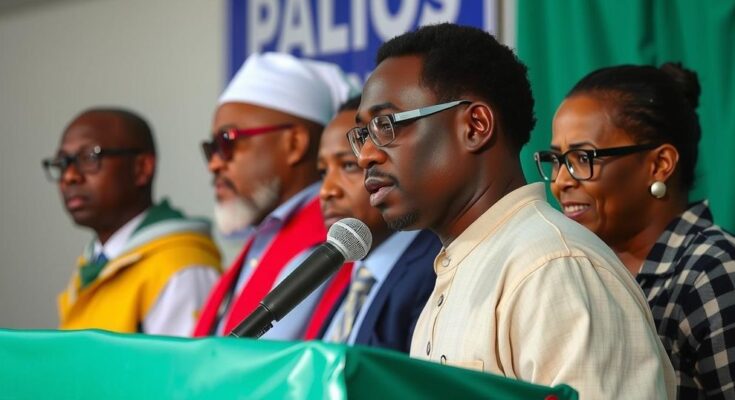Daoud Abdallah Mohamed, a key opposition leader in Comoros, has rejected the results of recent legislative elections, citing allegations of election fraud and malpractice by the ruling party. A majority of opposition groups boycotted the polls, leading to claims of a lack of transparency. The ruling party celebrated a significant number of wins, but observers have reported irregularities in the voting process.
The political environment in Comoros has become increasingly contentious following the recent legislative elections held on February 12. Opposition leader Daoud Abdallah Mohamed, representing the United Opposition coalition, vehemently rejected the election results, accusing the ruling party of widespread malpractice, including ballot box stuffing. Despite a significant boycott by opposition groups, the independent electoral commission declared a number of candidates from the ruling Convention for the Renewal of the Comoros (CRC) party as victors, claiming a voter turnout of 70 percent. Observers have expressed concerns over the legitimacy of the polling results, noting irregularities in districts favorable to the ruling party. Daoud Abdallah Mohamed affirmed that the United Opposition will abstain from participating in the upcoming second round of voting slated for February 16.
The Comoros, an archipelago in the Indian Ocean, has a tumultuous political history characterized by frequent elections, coups, and allegations of electoral malpractice. The recent legislative elections were held to select representatives for 33 lawmakers. The ruling Convention for the Renewal of the Comoros (CRC) party led by President Azali Assoumani, who has maintained power since 2016, has faced criticism from opposition parties, which claim that the electoral process lacks transparency and fairness. The current situation reflects a broader trend of political unrest and dissatisfaction among segments of the Comorian populace regarding governance and electoral integrity.
The rejection of the recent legislative election results by opposition leaders in Comoros underscores the significant divisions within the nation’s political landscape. The allegations of electoral fraud, combined with a high-profile boycott by opposition forces, raise serious questions about the legality and legitimacy of the electoral process. Without engagement from the opposition in future elections, the prospects for a fair political dialogue appear bleak, which may further complicate the governance of the Comoros.
Original Source: www.barrons.com




